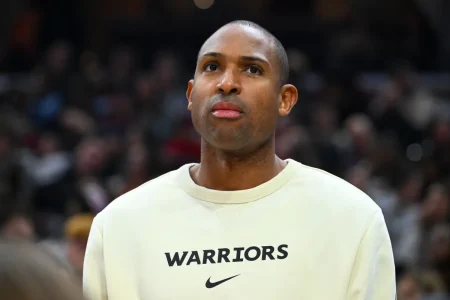Bills’ Unexpected Defeat and Introspective Response
In a stunning turn of events on “Monday Night Football,” the Buffalo Bills suffered a surprising 24-14 defeat at the hands of the Atlanta Falcons in one of Week 6’s biggest NFL upsets. The loss at Mercedes-Benz Stadium left the Bills visibly shocked, but what unfolded behind closed doors in the locker room afterward revealed a team already focused on solutions rather than dwelling in disappointment. According to Joe Buscaglia of The Athletic, who had rare access to these private post-game moments, quarterback Josh Allen displayed an unusual demeanor following the defeat. Rather than exhibiting the dejection typically seen after losses, Allen appeared frustrated yet determined, actively engaging with teammates and coaches to diagnose what had gone wrong. This more measured, problem-solving approach represented a departure from Allen’s past reactions to defeat, suggesting a maturing leadership style even in the face of an unexpected setback.
The locker room transformed into an impromptu strategy session immediately following the game. After briefly checking his phone, Allen settled into his locker stall chair where he was joined by practice-squad quarterback Shane Buechele, backup Mitchell Trubisky, and offensive coordinator Joe Brady. Together, they formed what Buscaglia described as a “diamond formation,” collectively attempting to decipher why the Bills’ offense had struggled to move the ball effectively for a second consecutive game. This immediate pivot to analysis rather than emotional reaction highlighted the team’s professional approach to addressing their performance issues. The quartet’s focused discussion centered primarily on the lack of production from boundary receivers, a problem that has become increasingly apparent in recent games and bears uncomfortable similarities to challenges the team faced throughout 2023.
The Bills’ offensive struggles were undeniably compounded by several key absences. Tight end Dalton Kincaid and wide receiver Curtis Samuel were sidelined for the entire game, while wide receiver Josh Palmer exited with an ankle injury. These personnel losses significantly impacted the Bills’ offensive options, limiting Allen’s reliable targets and making it difficult to establish consistent rhythm in the passing game. However, even accounting for these absences, the team’s offensive approach raised serious concerns – particularly their reluctance to attempt deeper passes. As Buscaglia pointedly noted, the Bills demonstrated “an overall shocking aversion to throwing the ball 20 or more yards down the field,” a strategic limitation that allowed Atlanta’s defense to compress the field and more effectively contain Buffalo’s attack.
Defensively, the Bills encountered equally troubling issues that proved decisive in the final outcome. They simply had no answer for the Falcons’ dynamic offensive playmakers, particularly running back Bijan Robinson, who amassed an impressive 238 scrimmage yards and scored a touchdown. Wide receiver Drake London also exploited weaknesses in Buffalo’s coverage, recording 10 catches for 158 yards and finding the end zone once. These defensive breakdowns allowed Atlanta to control the game’s tempo and ultimately secure their upset victory. The inability to contain key offensive threats represents a concerning trend for a Buffalo defense that has prided itself on disciplined play and tactical adaptability in previous seasons.
The most alarming revelation from this defeat, however, extends beyond a single disappointing performance. The Bills appear to be confronting the same wide receiver limitations that plagued them throughout the previous season, despite offseason efforts to address this specific vulnerability. The boundary receivers’ struggles to create separation from defenders has severely restricted the offense’s explosive play potential, forcing Allen to rely on shorter, more contested throws with limited opportunities for yards after catch. This persistent weakness suggests deeper structural issues with the receiving corps that may require more significant personnel adjustments than previously anticipated. The coaching staff now faces critical decisions about how to maximize the talents of their current roster while potentially exploring external options to bolster their receiving threats.
As the Bills process this unexpected defeat and prepare for their upcoming challenges, the team’s response in that quiet locker room moment may prove more significant than the loss itself. Rather than emotional outbursts or finger-pointing, the immediate focus on problem-solving and tactical adjustments reflects a mature team culture built for long-term success. While questions about their receiving corps and defensive consistency remain legitimate concerns, the methodical approach to addressing these issues suggests a team capable of making necessary corrections. For Bills fans, the disappointment of this upset loss may be tempered by the knowledge that their leaders are already hard at work ensuring such performances remain the exception rather than the rule. As the season progresses, how effectively the team implements solutions to these identified problems will ultimately determine whether this defeat represents merely a stumble or the exposure of more fundamental weaknesses.















